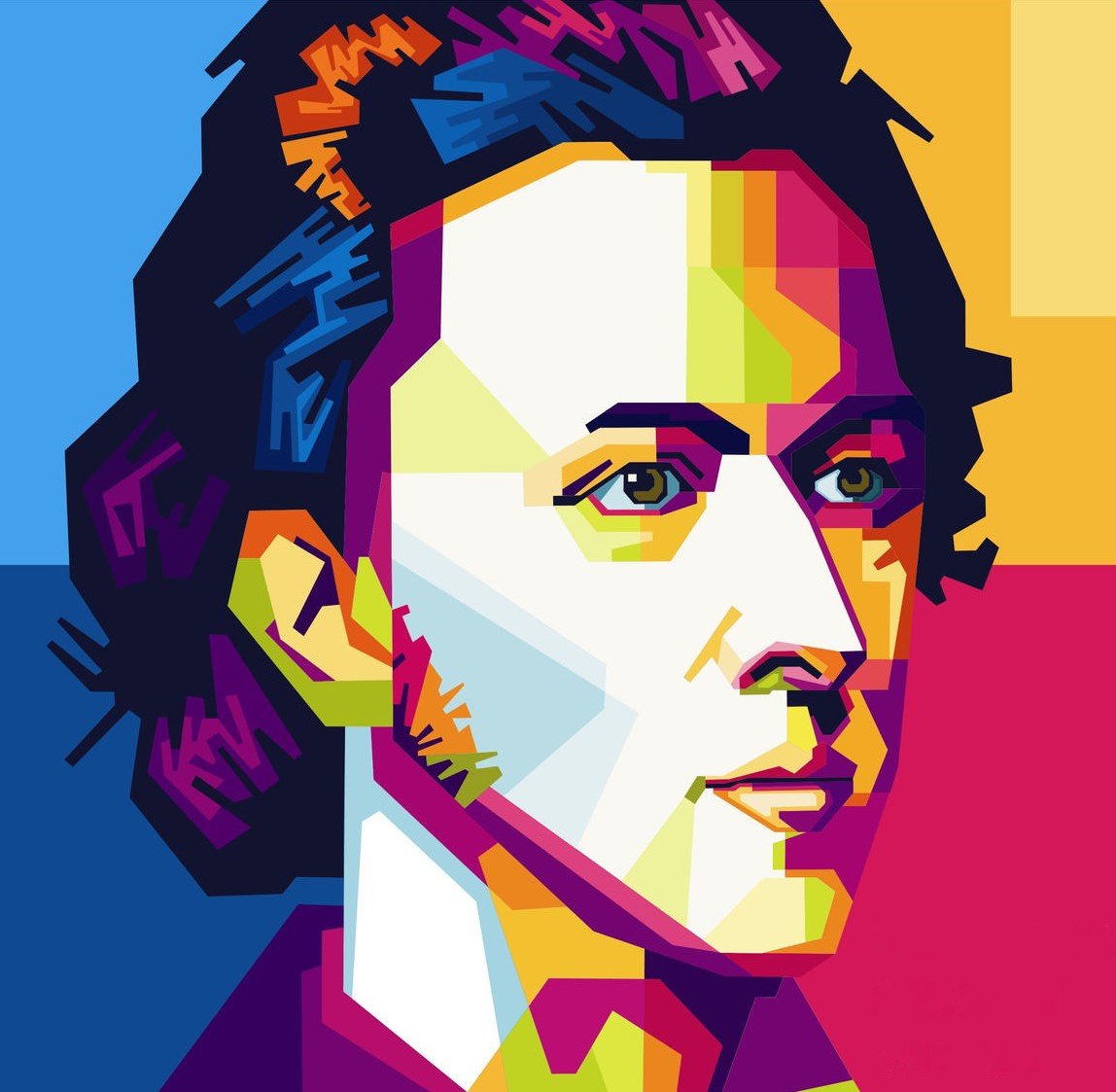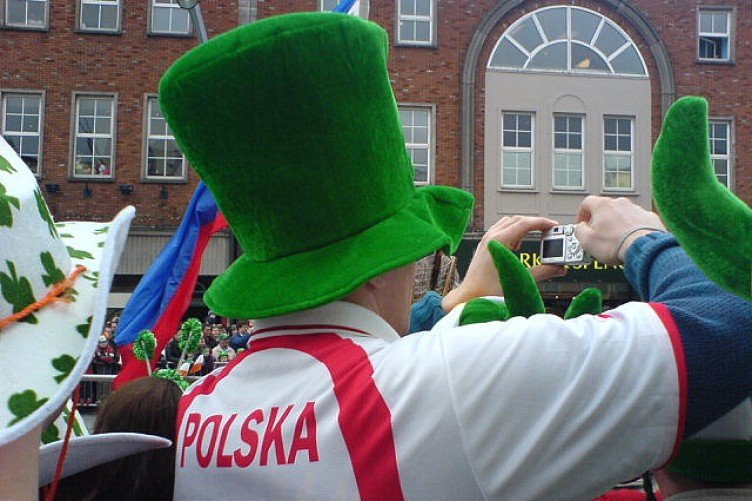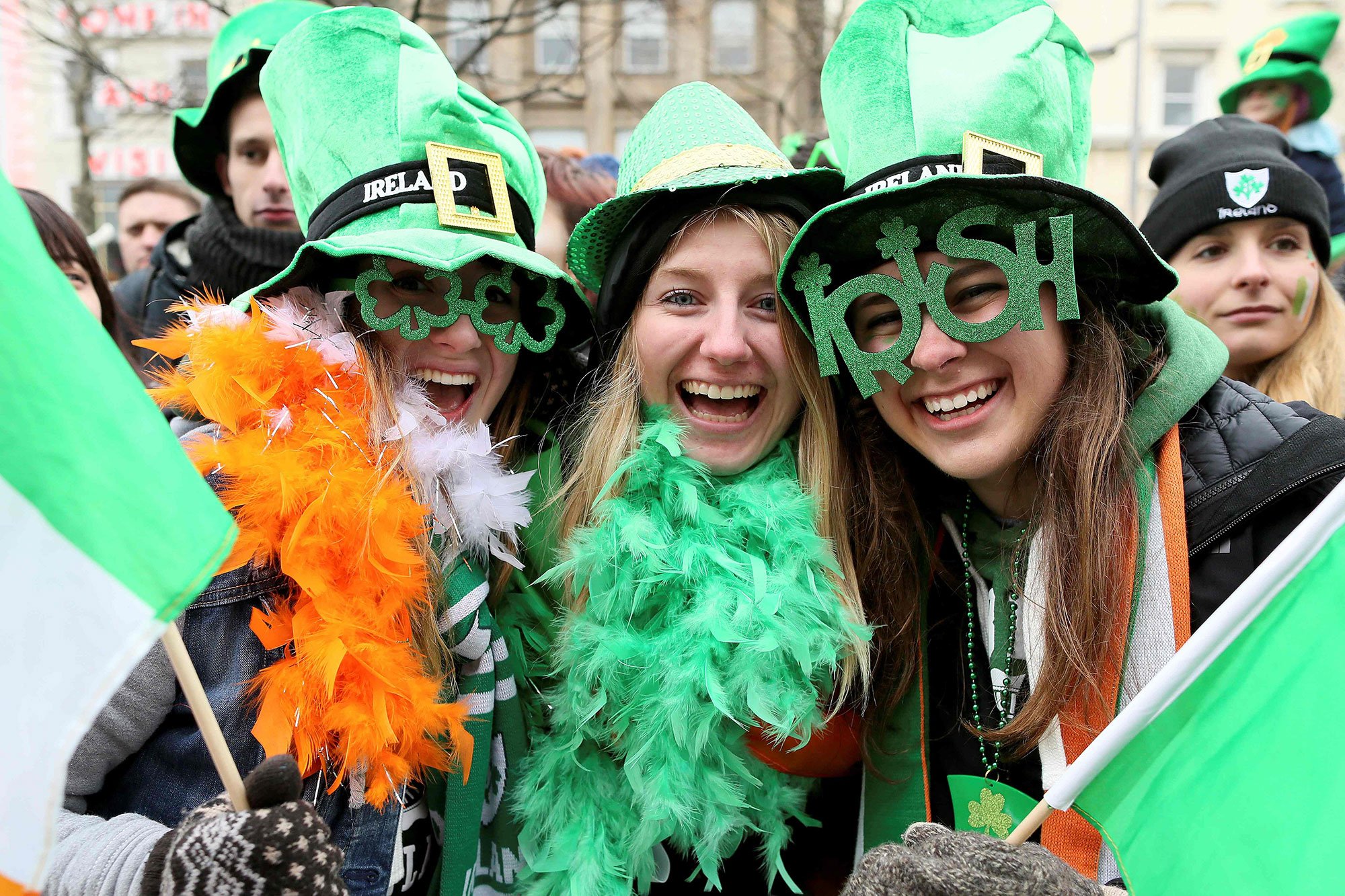Happy St. Paddy’s Day
It’s March 17th…
time once again to raise a glass (and a shamrock or two)
to the patron saint of Ireland, St. Patrick – on this day of everything-green, the anniversary of his death in the 5th century. You know how to dance, drink and feast (as well as other ‘bacchic’ activities) in celebration of everyone’s Irish, but do you know how to say it in Gaelic?
Lá Fhéile Pádraig sona duit! The expression means ‘Happy St. Patrick's Day to you!’ and is pronounced: ‘Law leh Paw-drig suna ghit.’
But who was St. Patrick, really?
Born in Roman Britain, he was kidnapped and brought to Ireland as a slave at the age of 16. He later escaped, but returned to Ireland and was credited with bringing Christianity to its people. In the centuries following Patrick’s death, the mythology surrounding his life became ever more ingrained in Irish culture. Perhaps the most well-known legend of St. Patrick is that he explained the Holy Trinity using the three leaves of a native Irish clover, the shamrock. Others say he banished snakes (a symbolic devil) from the island, but that sounds a little slithery...
Did you also know that St. Paddy’s Day is a great day for classical music?
It's the first day that the instructions on how to dance the 'fandango' are found in a letter written by a Spanish priest in 1712, but, perhaps more classically, it's the anniversary of Fryderyk Chopin's official public debut in Warsaw, performing his Piano Concerto No. 2, on March 17th, 1830. Have a listen…
It’s been said…
that only the music of Chopin could rouse Friedrich Nietzsche, the great German existentialist philosopher, from the edge of delirium.
Boris Pasternak, the great Russian poet (and sometimes composer) deemed Chopin the Tolstoy of music. Franz Liszt, renowned Hungarian composer and friend, was particularly enthusiastic about Chopin, and found Concerto No.2 to be “of a perfection almost ideal, its expression now radiant with light, now full of tender pathos.”
And Oscar Wilde wrote gushingly about him in one of his essays: “After playing Chopin, I feel as if I had been weeping over sins that I had never committed, and mourning over tragedies that were not my own.”
At any rate, the 19th century saw very few musicians who were more acclaimed than Chopin. This virtuoso pianist spent the Romantic era composing music that has been hailed by audiences, past and present, as some of the best pieces of classical music which have ever been composed.
EXQUISITE CHOPIN MONUMENT IN PARC MONCEAU IN PARIS, FRANCE
Chopin’s last concert was in London on November 16th, 1848, when, in a final patriotic gesture, he played for the benefit of Polish refugees. He returned to Paris, racked with tuberculosis, where he died the following year; his body was buried at the cemetery of Père-Lachaise (where you’ll find other notables like Rossini, Molière, Jim Morrison, and Oscar Wilde). Chopin’s heart, of course, was returned to Poland, interred at the Church of the Holy Cross in Warsaw.








